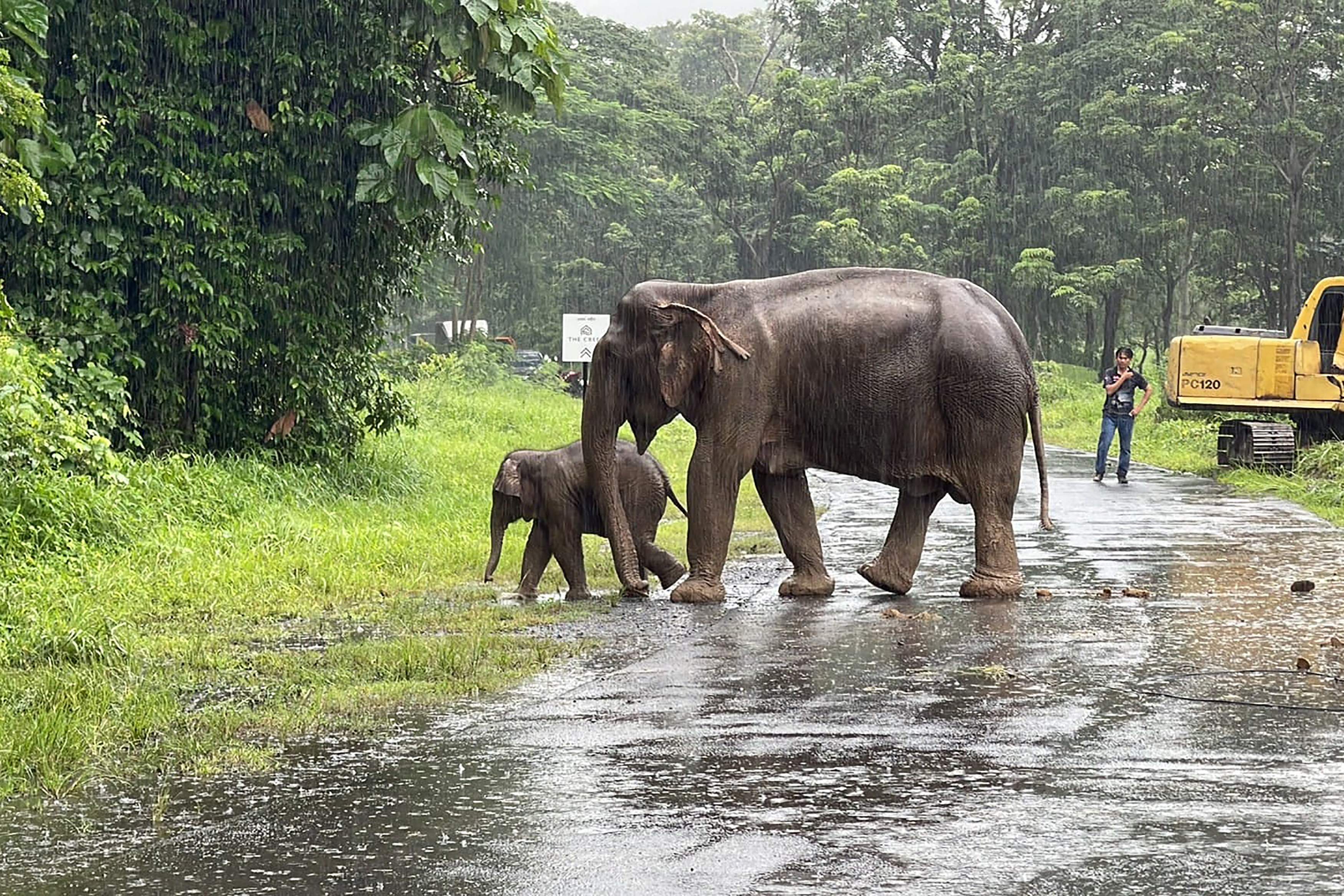Elephants could hold the key to curing cancer, new research claims
Scientists say the animals carry an army of tumour-fighting proteins that destroy mutated cells

Elephants could hold the key to curing cancer, new research claims.
They carry an army of tumour-fighting proteins that destroy mutated cells, scientists say.
It explains why Earth’s largest land animals are over five times less likely to develop the disease than humans.
Harnessing the genes could lead to a ‘one size fits all’ therapy for one of the world’s biggest killers.
Co author Professor Fritz Vollrath, of the University of Oxford, said: “This intricate and intriguing study demonstrates how much more there is to elephants than impressive size and how important it is that we not only conserve but also study these signature animals in minute detail.
“After all, their genetics and physiology are all driven by evolutionary history as well as today’s ecology, diet and behaviour.”
Despite their five ton bodies and longevity, elephants exhibit high resistance to cancer with mortality less than five percent - compared to up to 25 percent for us.
The phenomenon has puzzled biologists for decades. Large creatures should be at greater risk.
Cells keep dividing throughout an organism’s life - each carrying the risk of producing a tumour.
But elephants inherit 40 versions of a gene called P53, 20 from each parent. They are dubbed the ‘guardian of the genome.’ They hunt down and kill cells with faulty DNA.
All other mammals have two.
Biochemical analysis and computer simulations also showed the 40 versions are structurally slightly different.
This provides a much wider range of anti cancer activity than our paltry two - one from each parent.
Co author Professor Robin Fahraeus, of the French National Institute of Health and Medical Research, Paris, said: “This is an exciting development for our understanding of how p53 contributes to preventing cancer development.
“In humans, the same p53 protein is responsible for deciding if cells should stop proliferating or go into apoptosis (suicide) but how p53 makes this decision has been difficult to elucidate.
“The existence of several p53 forms in elephants with different capacities to interact offers an exciting new approach to shed new light on tumour suppressor activity.”
The findings published in the journal Molecular Biology and Evolution shed fresh light on how p53 proteins get activated.
They open the door to developing medications that increase its sensitivity and response against cancer causing environments.
Added lead author Dr Konstantinos Karakostis, of the Autonomous University of Barcelona added: “Conceptually, the accumulation of structurally modified p53 pools, collectively or synergistically co regulating the responses to diverse stresses in the cell, establishes an alternative mechanistic model of cell regulation of high potential significance to biomedical applications.”
Elephants, prized for their ivory tusks, are critically endangered after being driven to the brink of extinction by poachers.
Populations have experienced significant declines over the last century. There are now only about 400,000 left in Africa, and an estimated 30,000 in Asia.
A century ago, they were common across both continents. Elephants face added threats from habitat loss an global warming.
Join our commenting forum
Join thought-provoking conversations, follow other Independent readers and see their replies
Comments


Bookmark popover
Removed from bookmarks